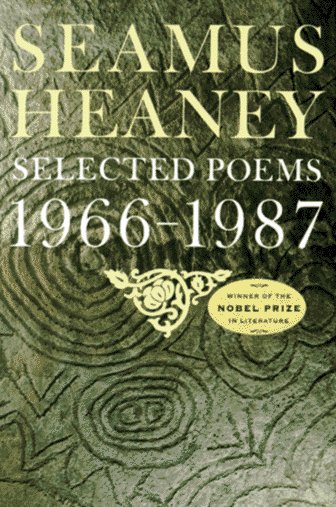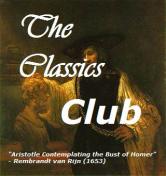 On hearing of Seamus Heaney's death recently, I was amazed at the reaction by many bloggers but also by people around me IRL: rarely has there been a poet held in such high regard, let alone in our day and age.
On hearing of Seamus Heaney's death recently, I was amazed at the reaction by many bloggers but also by people around me IRL: rarely has there been a poet held in such high regard, let alone in our day and age.
I did not know a thing about him (not something I can easily admit). In such cases, I turn to people who are able to enlighten me and guide me through my ignorance: here, an Irish colleague of mine, who kindly enough lent me his anthology of the 1966-1987poems.
Heaney had a full life. Reading about him, I discovered a person who could transform life's lessons into beautiful words, but who, at the same time, stood with both feet on the ground. I suppose it was his grasp of reality that permeated his poetry: for the first time, I could actually feel the words.
There, I've said it. I cannot understand poetry. My reality is so … trivial, my imagination so limited, that up to now I could not "get it" whenever I read poems. I will not claim to love poetry (not yet), but I can – and this will be my triumph – get into a poet's mind now and see and feel what they mean to say. Of all the poems in this book, I understood about half of them. Two really had an impact on me, with sentences sending shivers down my spine:
Digging
"…But I've no spade to follow men like them.
Between my finger and my thumb
The squat pen rests.
I'll dig with it."
(We are all given the materials to make something of our lives – it is in our hands what and how we will achieve greatness…)
Mid-Term Break
"…Wearing a poppy bruise on his left temple,
He lay in a four foot box as in his cot.
…
A four foot box, a foot for every year."
(here, personal experience was the trigger: losing a family member prematurely does indeed leave a scar)
After some more searching, I came across his beautiful poem Anything can happen, written after 9/11, capturing the emotions going through:
Anything can happen
"... Ground gives. The heaven's weight
Lifts up off Atlas like a kettle lid.
Capstones shift. Nothing resettles right.
Telluric ash and fire-spores boil away."
Heaney was a great poet and a great person. With his poetry, he has touched generations of students who might have been otherwise unwilling, but who then turned into admiring adults (like my colleague). For my part, I slowly grasp the uniqueness of poetry, and am no longer afraid to explore this side of the literary world.





